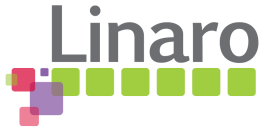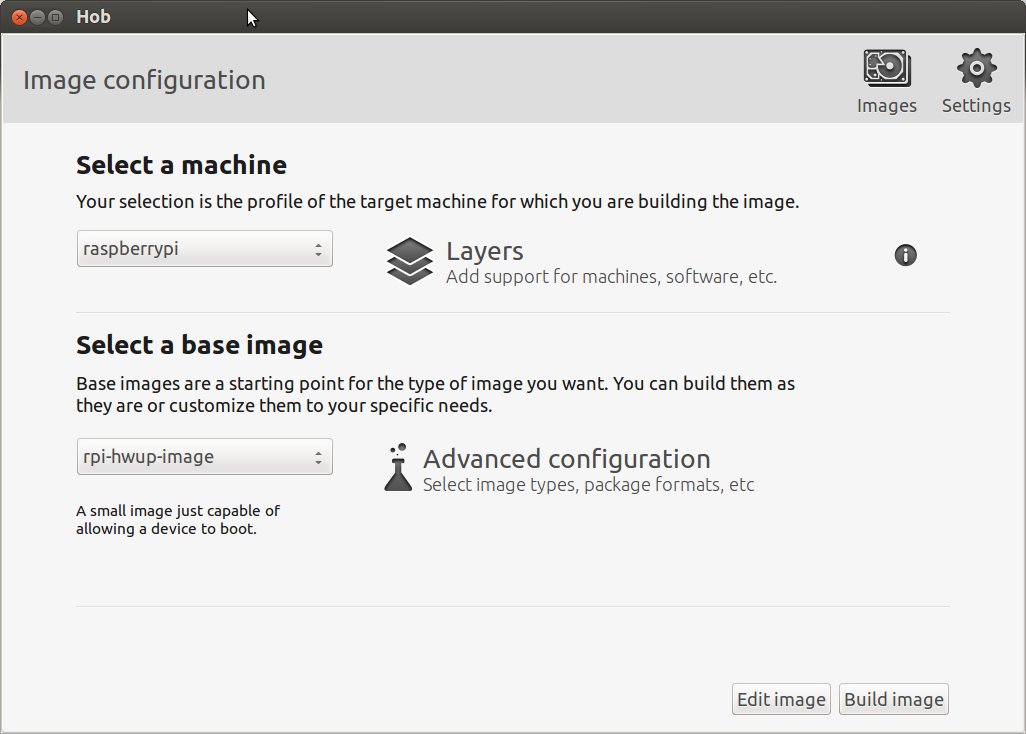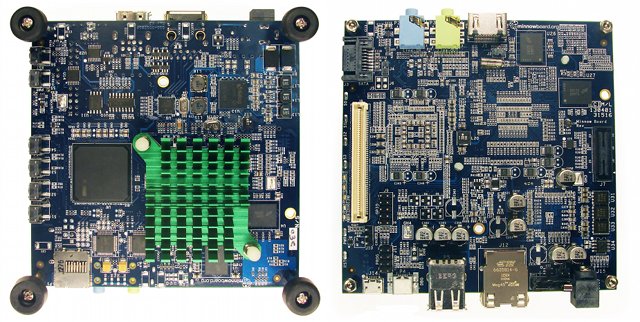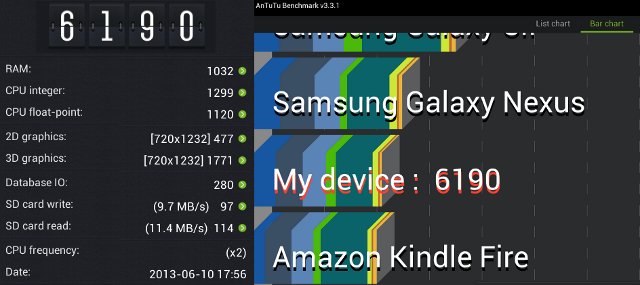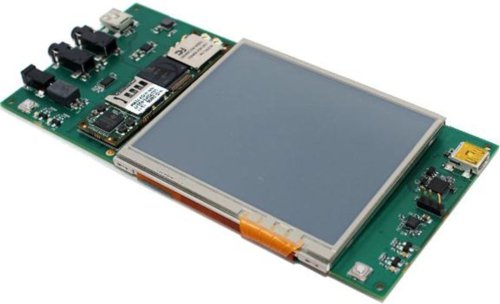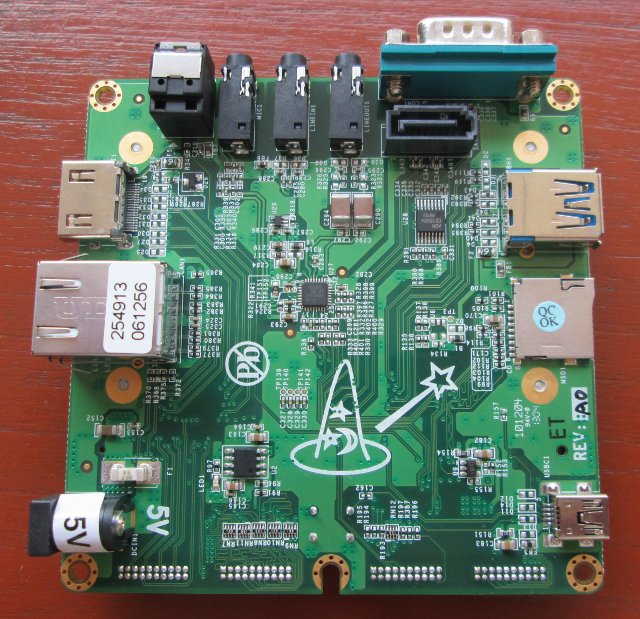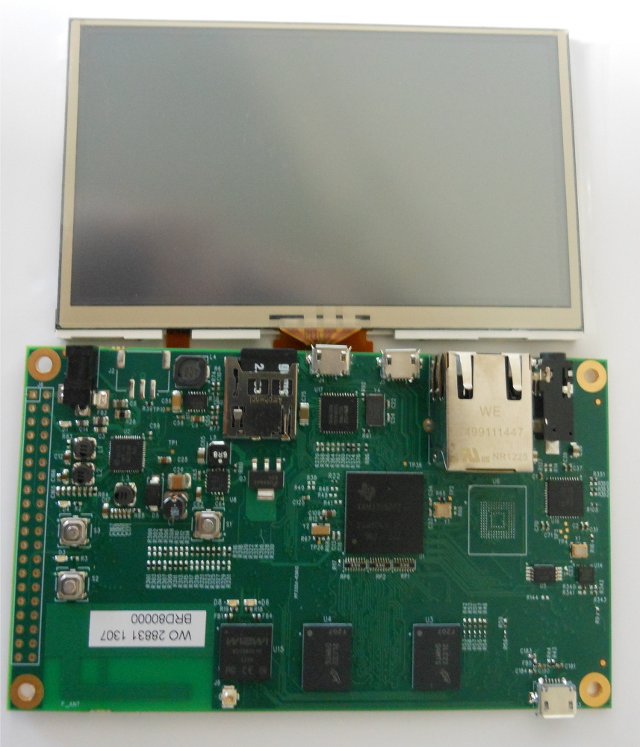Linaro Connect Europe 2013 (LCE13) is taking place in Dublin, Ireland on July 8 – 12, 2013. If you are not there, you can still follow the event remotely as the event schedule is available with tracks focused on Android, Builds and Baselines, Enterprise, Graphics and Multimedia, Linux Kernel, Network, Project Management Tools and Training, and the Testing and Validation mini-summit will also take place at the same time. There will be hacking and lab sessions each day (except on Friday) where you can expect to learn useful skills. I’ve selected 2 sessions per day that I think might be particularly interesting. Monday 10:00 – 10:45 – ARMv8 Status and Updates Current Status of v8 tree What’s merged? What’s features are next priorities? Platform Updates What members should know about adding new v8 platforms 12:00 – 13:00 – How to make Android more efficient for entry level products The main objective of […]
12MB Minimal Image for Raspberry Pi using the Yocto Project
Last year, I wrote instructions and provided a download link about a minimal image for Raspberry Pi based on Raspbian. The compressed image is 84MB, and the good thing about it is that you can just use apt-get to install packages. The problem is that it’s not actually that small as once it is uncompressed the rootfs is still a massive 414 MB. So today, I’ll explain how to create a smaller (and custom) image using the Yocto Project, a platform that let you build an embedded Linux distribution matching exactly your project’s requirements. Other advantages are that the build is configurable with config files, so it’s easily reproducible with a few command lines, and it might turn out to be useful to learn more about the Yocto Project as many boards and SoC are now making use of the framework, including Freescale i.MX6 (Wandboard, Olinuxino-imx233, Sabrelite, etc…), the Beagleboard, […]
$199 Minnowboard is an Open Source Embedded Board Powered By Intel Atom E640 Processor
Minnowboard is a development board designed by Intel’s Open Source Technology Center, powered by Intel Atom E640 processor @ 1GHz with 1GB RAM, SATA2 and Gigabit Ethernet support, and several embedded I/O such as SPI, I2C and CAN, and that ships with Angstrom Linux distribution. Minnoboard Specifications: Processor – Intel Atom E640 @ 1GHz (32bit) Chipset – EG20T Intel Platform Controller Hub GPU – Integrated Intel Graphics Media Accelerator (GMA) 600 System Memory – 1 GB DDR2 RAM Storage – 4 MB SPI Flash (for Firmware), micro SD card slot and SATA Video Output – SDVO to DVI (over HDMI connector) Audio – 1/8″ (3.5mm??) jack line Input and Output I/O: 1x SATA2 3Gb/sec 2x USB host ports + 1x micro USB device 1x Serial debug via Serial (UART 0) to USB conversion (mini-USB-B port) 10/100/1000 Ethernet PCI Express Expansions: 8x Buffered GPIO pins 2x GPIO controlled LEDs 4x GPIO […]
Wandboard Dual Benchmarks, Serial Console Fun, and Distributions List
Since last time I tried Android and Ubuntu on the Wandboard, a few things happened. I’m not talking about Wandboard Quad announcement, but instead I received a Class 10 SD card, which makes the system so much responsive, and a RS232 to USB adapter so that I can access the serial console. So today, I’ll publish some benchmark results on Wandboard Dual since none appear to be available, and play a little with the serial console. A few things also happened on the operating systems side with more distributions now available for the board. Prerequisites I ran benchmark in Android, so I installed the latest Android 4.1.2 image (11th of April 2012) to my new SD card (ADATA 16 GB Class 10), and contrary to my poor experience on a 4GB Class 4 micro SD, everything was very fluid. I’ve also installed Google Play in order to install the applications. […]
Gumstix Alto35 Customizable Touchscreen Board
A few months ago, Gumstix introduced Geppeto, a web platform that allows you to design and order your own baseboard for Gumstix Overo systems-on-module within minutes. The company has just announced Alto35, an expansion board built entirely with Geppetto. The Alto35 replaces Palo35 Overo-series expansion board with the same features, but adding the possibility of customizing the board via Geppetto. Alto34 expansions board features the following: 3.5″ LCD resistive touch screen Stereo audio in/out jacks 3D accelerometer (STMicro LIS33DE) RC servo USB – 2x USB mini-B ports, including console port (FT232RQ USB UART) LEDs in 4 different colors, 2 tactile switches. 2×70-pin AVX Headers compatible with Overo COMs. Power – 3.5V-5V All Overo computers-on-module are compatible with Alto35 board, so you can just use existing software solutions such as Linaro Ubuntu, Robot Operating System, and the Yocto Project. Alto35 is available for $89 including the display (not the Overo module), […]
Yocto Project 1.4 “Dylan” Release
The Yocto Project Release 1.4 has just been announced. This release codenamed “Dylan” and based on Poky 9.0.0 is the sixth release of the project. The Yocto Project is a framework that creates embedded Linux distributions, and has been getting more and more traction with silicon vendors such as Intel, Freescale and Texas Instruments. Yocto Project 1.4 bring the following new features and updates: Major performance improvements – The overall build time has been reduced by more than 10%. Kernel build time is reduced by about 25%. With rm_work enabled, 40% less storage will be used for the tmp directory. Smart, a replacement for zypper Support for read-only rootfs Wayland support, an X replacement. Systemd support, a replacement for the system V init daemon. Usability improvements to HOB, bitbake, yocto-bsp and other tools, including UI improvements, new features and bug fixes. Documentation improvement/update and a new kernel development manual and […]
Wandboard Releases Updated Android and Ubuntu Linux Images and Source Code
Since I’ve received my previous short review of the Wandboard Dual development board, there has been more work on done the platform with new Android and Ubuntu images, Jelly Bean source, Linux SDK release, and git repo setup. I’ve tried the binary images, and had a quick look at the source code and corresponding documentation. Android 4.1.2 Image and Source Code Wanboard has release an improved Android image on the 14th of March which you can download for both Solo and Dual version of the development board with the following Changelog: Fix HDMI audio/playback issue with certain monitor. Add support for wifi on wandboard-dual. Known issue: Might need to turn off “Avoid poor connections” in Wi-Fi ->Advanced to keep connection alive. I’ve given it a try in Wandboard Dual, and it seems Ethernet support is gone (Sorry my mistake, Ethernet IS working, but there’s no indication when it’s connected, and […]
Gumstix Unveils $249 Pepper Single Board Computer Powered by TI Sitara AM3359
Gumstix has just announced a new single board computer for Linux embedded development and experimentation. Pepper is powered by Texas Instruments Sitara AM3359 Cortex A8 processor, and comes with 512MB DDR2, WiFi and Bluetooth connectivity, a 4.3″ LCD touchscreen and more. Gumstix Pepper Key features: Processor – Texas Instruments Sitara AM3359 Cortex A8 processor up to 720 MHz System Memory – 512MB DDR2 Storage – microSD card slot (No flash) Connectivity: Wifi – 802.11 b/g/n 10/100/1000M Ethernet Bluetooth 3.0 Display – Samsung 4.3″ LCD resistive touchscreen (480 x 272) USB – 2x USB OTG connectors Expansion headers – For I2C, SPI and UARTs GPIO-controlled push buttons and LEDs Sensors – 3D Accelerometer (ST LIS33DE) Power – 5V Since there’s no flash, a microSD is used to boot the board. Gumstix provides a Linux distribution built with the Yocto Project which you” eventually be able to download here (the page is […]


